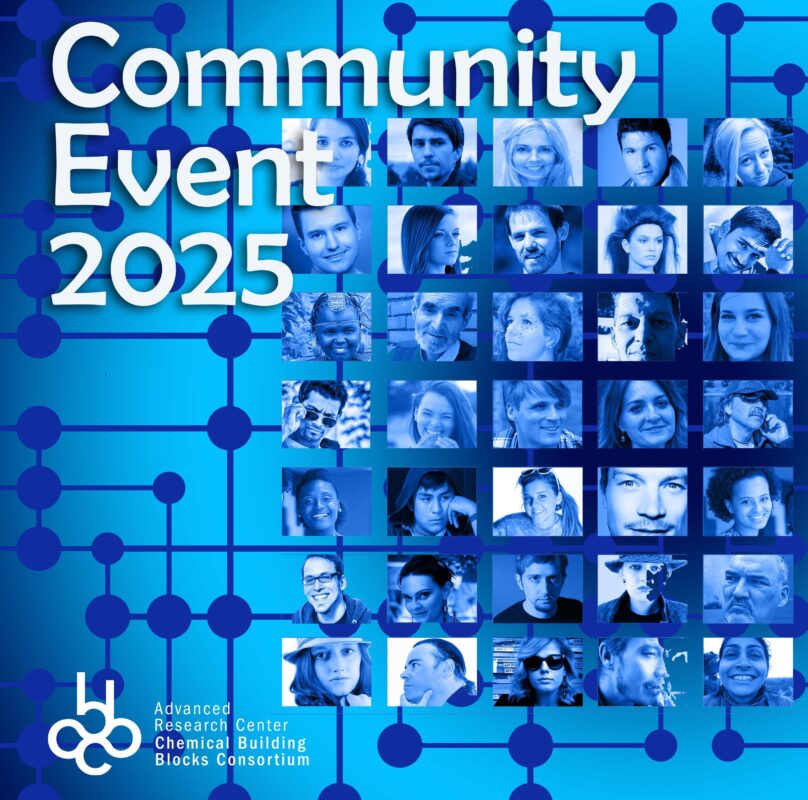
We are happy to invite the entire ARC CBBC community to the annual ARC CBBC Community Event on 28 October 2025 in Groningen!
During this event, attendees from academia and industry from the ARC CBBC community all across the country get the opportunity to meet and present their work. An excellent opportunity to meet fellow researchers, exchange expertise and get up to date with the latest developments of the ARC CBBC research!
During the day, lunch, dinner and drinks will be provided. We also hope many of you will join us for dinner to end the day on a relaxed note.
Poster sessions
As you can see in the program, we will have poster sessions towards the end of the Community Event. We highly recommend all PhD candidates and postdoctoral researchers to participate in these poster sessions with your own poster, since this is a unique opportunity to present your work to scientists from both academia and industry. In addition to this, representatives from the Scientific Advisory Board will be attending. So don’t miss out on this opportunity!
Please note that, even though this is an event for only for the ARC CBBC community, your poster needs to be approved through Permission to Publish (permissiontopublish@arc-cbbc.nl), with the regular approval time. We would like to ask you to use the ARC CBBC poster template for your posters.
Final details will be shared via e-mail before the event.
Please be reminded of the fact that attending the Community Event is mandatory for all ARC CBBC PhD candidates and postdoctoral researchers.
For questions regarding the ARC CBBC Community Event, you can reach out to communication@arc-cbbc.nl.
We look forward to seeing you in Groningen!
The program of the ARC CBBC Community Event 2025 is as follows:
09:30 – 10:00 entry with coffee
10:00 – 10:15 welcome by Michael Lerch
10:15 "The Road Still Untraveled: Transforming Academic Discoveries into Industrial Solutions in Computational Chemistry” Talk by Nong Artrith, Utrecht University and Pim Koeckhoven, AkzoNobel
11:00 Transitioning to Industry: Practical Steps for PhDs Seeking R&D Roles Interactive session by: Rolf Beerthuis (AkzoNobel), Jerome Simons (Shell) & Gerald Metselaar (BASF)
12:00 Lunch break
13:00 “Is sustainability passé” Talk by Kevin van Geem, Ghent University
13:45 “Public acceptability of climate policies” Talk by Lecture Goda Perlaviciute, together with Adelaida Patrasc-Lungu and Gonzalo Palomo Velez, University Groningen
14:45 Refreshment break
15:00 - 17:00 Poster session (incl. drinks and poster prize)
18:00 Dinner at Mr. Mofongo (expected to finish around 21:00)
__________________________________________________________________________________
Kevin van Geem, Ghent University
Abstract:
Is sustainability a concept of the past, or is it more relevant than ever? This presentation, titled "Is Sustainability passé?", delves into the evolving role of sustainability in today's world. I'll argue that far from being outdated, sustainability is no longer a niche concern but a fundamental necessity for progress. We'll explore how the discourse has shifted from a primarily environmental focus to an integrated approach encompassing economic viability and social equity. I will discuss key challenges and opportunities, including the imperative for circular economy models, the role of technological innovation, and the need for new policy frameworks. This talk aims to reframe sustainability not as a buzzword, but as a dynamic and indispensable pillar for a resilient and prosperous future.
About the Author
Professor Kevin Van Geem is a distinguished professor at Ghent University and leads the Laboratory for Chemical Technology (LCT). His research focuses on sustainable chemical processes, with a particular emphasis on the conversion of biomass and plastic waste into valuable chemicals and fuels. Professor Van Geem is a leading voice in the field of sustainable chemistry and engineering.
________________________________________________________________________________________________________________________________________
Goda Perlaviciute, University Groningen
Abstract: Public acceptability is key for effective implementation of climate and environmental policies. But what determines public acceptability? How to reach climate and environmental policies that are seen as fear and just, and can rely on wide public trust and support? I will present insights from Environmental psychology about key drivers of policy acceptability, including people's values, trust, and fairness perceptions.
________________________________________________________________________________________________________________________________________